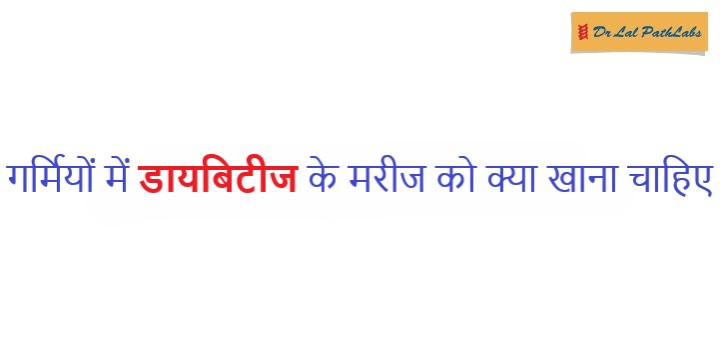Dietary and Nutritional needs for the Blood Cancer Patients
- 16 Jan, 2018
- Written by Team Dr Lal PathLabs
Medically Approved by Dr. Seema
Table of Contents

When anyone in the family is diagnosed with blood cancer, it affects the entire family. This holds especially true when a child has cancer. The patient and family should be aware that the outlook for many of these patients is very good.
A cancer diagnosis can have a great impact on patients, their families, and the caregivers. Patients who have a good family support can deal with their situations better than those who don’t have it. Caregivers and family members can help the patient throughout their struggle to make the treatment easy. Successful treatment is a result of good teamwork and cooperation between the patients, their families, and caregivers. This combination gives comfort to patients and maximizes their chances of healing and recovering from the illness. With your courage, hope, and inspiration, the patient can live a productive and fulfilling life. In addition to taking care of the cancer patient, it is important for the family members and the caregivers to take care of themselves.
In the current era, no disease can be called as incurable or impossible to treat. Most of the cancers can be treated, and numerous people survive cancer every year. Today, a lot of treatment options are available for blood cancer, which can be managed by proper assessment, appropriate treatment, surgical techniques, and stringent follow-ups.
Although the coping strategies may vary for different individuals, certain strategies are very effective and can be applied easily. The family and loved ones of the patient with cancer can ensure that the patient lives each day in a normal way. Encourage the patient to enjoy the simple things, such as cooking favorite meals, spending time with friends and loved ones, watching movies, meditating, listening to music, or being engrossed in almost anything one finds enjoyable.
The coffee table magazine is designed to help you through this journey by guiding you through the diagnosis and care before, during, and after the treatment. This magazine is a ray of hope to those who are fighting against blood cancer, and also to the caregivers who are trying their best and making a lot of efforts to make the life of their near and dear ones much better. This magazine will help improve and restore health, inspire, empower, and motivate you while you undergo treatment and cope with blood cancer.
Diet and Nutrition
A healthy diet is an essential part of cancer treatment and eating the right kinds of food before, during, and after the treatment helps you to become stronger.
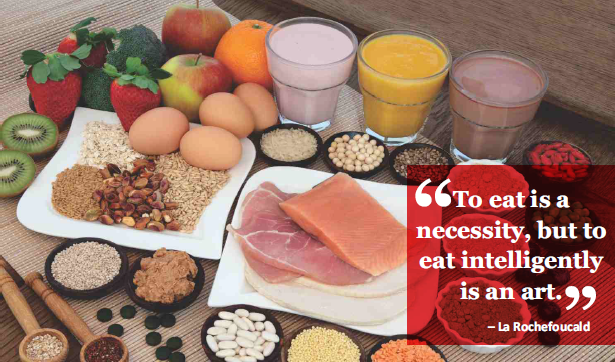
Eating well before treatment
Many people may have lost weight even before they are diagnosed with cancer. If you or your loved one has lost weight even before starting the treatment, a high-protein and high-calorie diet may be beneficial.
How will eating well before treatment benefit?
A healthy diet will help you:
- Be strong when you go for the treatment
- Prevent your body tissues from breaking down
- Rebuild body tissues
- Fight against infections
- Cope up better with the side effects of treatment
A healthy diet may even help you handle higher doses of some drugs. Also, some cancer treatments work better in well-nourished people, who are eating enough calories and protein.
Examples of high-protein foods are beans, legumes, nuts, seeds, milk and milk products, eggs (well cooked), meats, poultry, and fish.
Examples of high-calorie foods are butter, cream, mayonnaise, honey, jam, and icecream.
Helpful tips before treatment
- The family members can make a list of the favorite foods of the patient. This list should include foods that the patient can consume even during sickness.
- Discuss ways in which family members and friends can help with shopping and cooking.
Eating well during treatment
How will eating well during the treatment benefit?
Chemotherapy, other drugs, and radiation therapy increase the body’s daily requirement for calories and proteins.
Eating well during your treatment helps you:
- Replace your blood cells with new healthy ones
- Feel strong and energetic
- Maintain your body weight
- Maintain your body’s store of nutrients
- Tolerate side effects of the treatment
- Lower your risk of infection
- Repair, heal, and recover faster
Helpful tips during the treatment
- During the treatment of cancer, the patient’s body needs more calories and proteins for maintaining weight and quick healing.
- The body’s major source of calories is carbohydrates.
- Extra proteins help in healing tissues and fighting infections after surgery, chemotherapy, or radiation therapy.
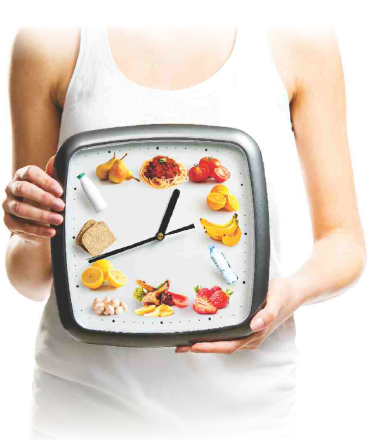
How to ensure that the patient gets more calories and proteins?
Try to ensure that the patient eats many small meals every few hours, rather than having three large meals. Each meal or snack should have high-calorie and high-protein foods. Another attractive option is high-calorie, high-protein drinks like milk shakes. Prefer plant-based foods, such as beans and peas, instead of meat. High-fat foods can be limited by choosing a lower-fat cooking method, such as baking or broiling.
Best carbohydrate sources are fruits, vegetables, and whole grains like wheat. These foods also supply essential vitamins and minerals, fiber, and phytonutrients to the body’s cells. The fiber helps move the food waste out of the body quickly and keeps the stool soft. Phytonutrients are chemicals in plant-based foods that might promote health.
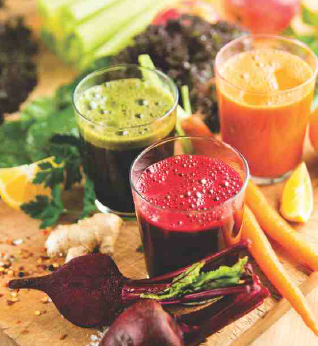
Other beneficial diet considerations
Make sure that the patient is given 5–10 servings of fruits (eg, citrus fruits) and vegetables (eg, dark-green and deepyellow vegetables) every day. Also, include one or more servings of cruciferous vegetables in the diet almost every day (eg, cauliflower, cabbage, and radish). Colorful vegetables and fruits and plant-based foods contain many natural, healthpromoting substances.
One serving = Half a cup for most fruits and vegetables/one cup for leafy greens, melons, and berries
Exercising lightly or taking a walk before meals helps increase the appetite. Don’t wait till the patient is hungry, and encourage the patient to eat his/her favorite foods at any time of the day. The biggest meal can be planned when the patient feels most hungry.
Drinking enough water is very important during cancer treatment because some cancer therapies can cause dehydration. Additionally, some side effects, such as diarrhea and vomiting, can also contribute to dehydration. Liquids will help relieve fatigue and constipation in patients. Therefore, patients should be encouraged to drink water and other approved liquids throughout the day. Sipping even small amounts of water at regular intervals helps if that’s all you can manage. Ask your doctor about the amount of water you should consume each day. Fluids should be taken between meals instead of with meals.
Important tips to maintain food safety
Caregivers can ensure food safety, as it is a significant aspect for cancer patients. The tips shared below will guide you regarding how to handle the food of these patients safely. Keeping these tips in mind, you can take good care of the food requirements of your loved and near and dear ones.
- Ensure that the hands are properly washed before preparing any food. All kitchenware used while preparing food should also be clean.
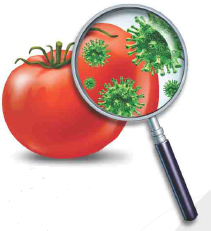
- Also, the fruits and vegetables should be washed thoroughly before eating them.
- Ensure that the patient washes his/her hands properly before eating.
- The patient should have only pasteurized/boiled milk and cheese made from pasteurized milk only.
- Raw sprouts should be avoided; cooked sprouts must be consumed instead.
- Whenever food is reheated, items such as sauces, soups, and gravy have to be brought to a boil.
- If an individual is eating away from home, raw or undercooked food (eg, salads, raw/undercooked eggs, and meat) has to be avoided.
- Drink clean and boiled water.
- Handle raw meats with care and keep them away from cooked foods. Cook eggs/meat/poultry/fish properly.
Guide to managing side effects
Although the treatment of cancer may cause some side effects, one should not worry. The side effects are temporary, and they last as long as the treatment is continued. Based on the type of side effects you experience, here are some simple things that your family and loved ones can do to help you cope efficiently. Small things, such as eating with family or friends, watching TV, or reading can make a big difference.
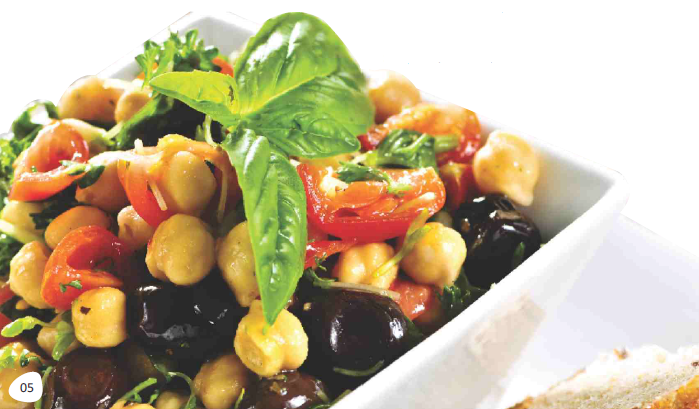
Loss of appetite
- Your family can make the meal look delicious and tempting, so that you feel like eating.
- Check with the patient if they would prefer strained or pureed food, as they may find it easier to eat.
- Low-fat milkshakes with fresh fruit or even soup can be given.
- Give dahi/lassi, as it is easily digested.
Nausea
- If the patient is experiencing nausea, offer small and frequent meals and avoid fried or fatty foods.
- Ensure that the food does not have a strong smell, which could cause nausea.
Constipation
- If the patient is experiencing constipation, ensure that he/she eats regular meals and does not miss breakfast.
- Make sure that the patient drinks at least eight glasses of fluid every day and two glasses of water on an empty stomach early in the morning.
- Other helpful measures for constipation are adding more fiber to meals (oats, dalia), eating fruits and vegetables daily, eating slowly and chewing the food well, and drinking slowly and avoiding swallowing air.
Diarrhea
- If the patient has diarrhea, make sure he/she drinks plenty of fluids to prevent dehydration. A light green tea may also help.
- It is beneficial to eat small, light, and frequent meals and include foods that are easy to digest (rice and corn flakes).
- Spicy and fatty foods should be avoided at all costs.

Eating well after treatment
How will eating well after the treatment benefit?
All the efforts exercised by you may have brought a lot of improvements and good results in your health, and you may have won over cancer. However, it is important for you to maintain a healthy diet to recover from the treatment and follow good eating habits, which will not only give strength but also rebuild tissues and promote healing and growth of new blood cells. Eating right will help to build your immunity and assist your body to fight against infections. It will also help you prevent further weight loss and regain the weight that you have lost during the course. It will provide energy and prevent muscle loss, thereby helping you to lead a normal life and avoid the recurrence of cancer.
Helpful tips after the treatment
- After the treatment, it is very important to follow the diet restrictions of your cancer care team.
- Choose a variety of foods from all the food groups (proteins, carbohydrates and fats).
- Eat at least 2½ cups of fruits and vegetables each day.
- Eat plenty of high-fiber foods.
- Have a diet that is low in fat, and limit the intake of red meat to less than than 3–4 servings per week.
- Limit alcohol to less than one drink per day for women and two for men.
Diet to reduce the risk of cancer recurrence
It is important for cancer survivors to maintain a healthy body weight, eat a plant-based diet, adopt a physically active lifestyle on a day-to-day basis, consume less red meat, limit alcohol, avoid sugary food, stay clear of tobacco products, and limit salt intake.



